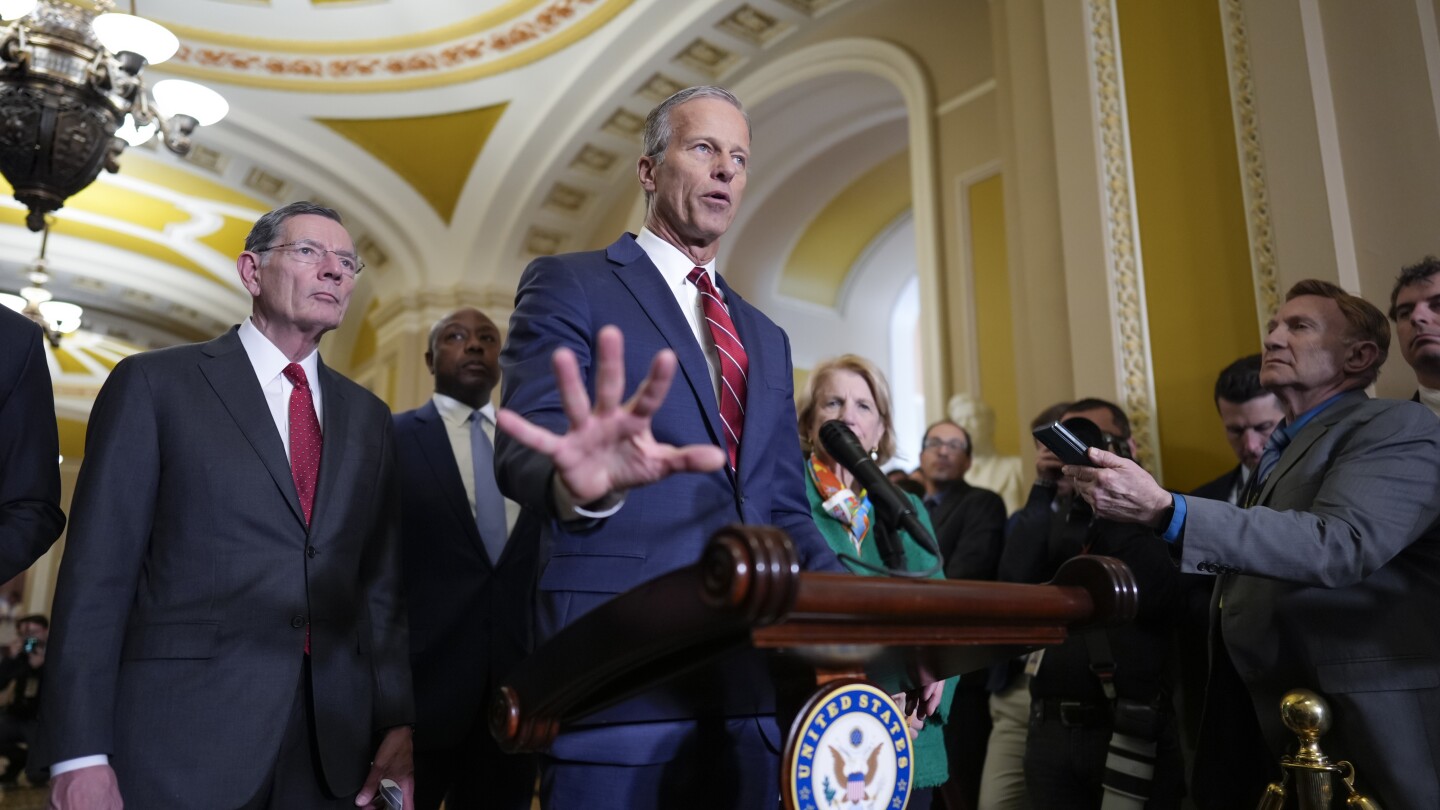PoliticalChic
Diamond Member
1. Article 1, section 8 begins as follows: "Section 8:
The Congress shall have power to lay and collect taxes, duties, imposts and excises, to pay the debts and provide for the common defense and general welfare of the United States; but all duties, imposts and excises shall be uniform throughout the United States;
After this introduction, come seventeen enumerated power.
The whole point of enumerating the powers of the federal government, i.e., the list of seventeen, was to proclaim that these, and only these, were authorized, and after paying for these 17, any remaining should be returned as tax cuts.
2. "Senate GOP approves framework for Trump’s tax breaks and spending cuts after late-night session"

 apnews.com
apnews.com
3."Trump-backed budget bill approved in US House"

 www.bbc.com
www.bbc.com
4. Of course, the Democrats have a very different view of taxation.
.The attitude of the FDR government, and Democrats in general, can be seen in these words of A.B. “Happy” Chandler, a former Kentucky governor: “[A]ll of us owe the government; we owe it for everything we have—and that is the basis of obligation—and the government can take everything we have if the government needs it. . . . The government can assert its right to have all the taxes it needs for any purpose, either now or at any time in the future.”
From a speech delivered on the Senate floor
May 14, 1943 Happy Chandler’s dangerous statism
5. Historic:
April 11th, 491
Anastasius become the Byzanine emperor, Roman Empire of the East. In the first documented exercise of what would come to be called trickle-down economics, Anastasius I abolished a wide range of taxes that fell heavily on the empire’s most productive classes, its craftsmen and merchants, arguing correctly, that a prosperous merchant would pay even more in fees than the treasury lost in taxes. Under his rule the treasury grew by 320,000 pounds of gold. Justin followed him in 518, followed by Justinian I.
[“Justinian’s Flea,” Rosen, p. 62-63]
The Congress shall have power to lay and collect taxes, duties, imposts and excises, to pay the debts and provide for the common defense and general welfare of the United States; but all duties, imposts and excises shall be uniform throughout the United States;
After this introduction, come seventeen enumerated power.
The whole point of enumerating the powers of the federal government, i.e., the list of seventeen, was to proclaim that these, and only these, were authorized, and after paying for these 17, any remaining should be returned as tax cuts.
2. "Senate GOP approves framework for Trump’s tax breaks and spending cuts after late-night session"
Senate GOP approves framework for Trump's tax breaks and spending cuts after late-night session
The Republican-controlled Senate has approved a budget framework that includes multitrillion-dollar tax breaks and spending cuts.
3."Trump-backed budget bill approved in US House"

US House approves Trump-backed budget bill
The budget, which now must be merged with the Senate's bill, would cut taxes by about $5 trln.
4. Of course, the Democrats have a very different view of taxation.
.The attitude of the FDR government, and Democrats in general, can be seen in these words of A.B. “Happy” Chandler, a former Kentucky governor: “[A]ll of us owe the government; we owe it for everything we have—and that is the basis of obligation—and the government can take everything we have if the government needs it. . . . The government can assert its right to have all the taxes it needs for any purpose, either now or at any time in the future.”
From a speech delivered on the Senate floor
May 14, 1943 Happy Chandler’s dangerous statism
5. Historic:
April 11th, 491
Anastasius become the Byzanine emperor, Roman Empire of the East. In the first documented exercise of what would come to be called trickle-down economics, Anastasius I abolished a wide range of taxes that fell heavily on the empire’s most productive classes, its craftsmen and merchants, arguing correctly, that a prosperous merchant would pay even more in fees than the treasury lost in taxes. Under his rule the treasury grew by 320,000 pounds of gold. Justin followed him in 518, followed by Justinian I.
[“Justinian’s Flea,” Rosen, p. 62-63]